Russian and Chinese chess queens battle for women’s world title – but should chess even have a male-female divide?
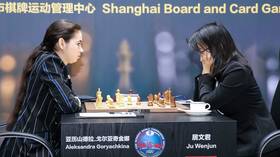
As Russia’s Aleksandra Goryachkina and China’s Ju Wenjun compete for the Women's World Chess Championship this week, some might question whether chess really needs a male-female divide at all.
Goryachkina, 21, is the young pretender to the crown held by defending women’s world champion Ju, 28, as they battle it out over 12 games in Shanghai and Vladivostok.
The prize fund is a cool €500,000 (US$556,000), with the winner taking home €300,000 of that amount.
The money on offer is still only around half of that offered at the World Chess Championship – which is open to men and women – but represents a 150-percent increase on the previous women’s showpiece event, according to the International Chess Federation (FIDE).
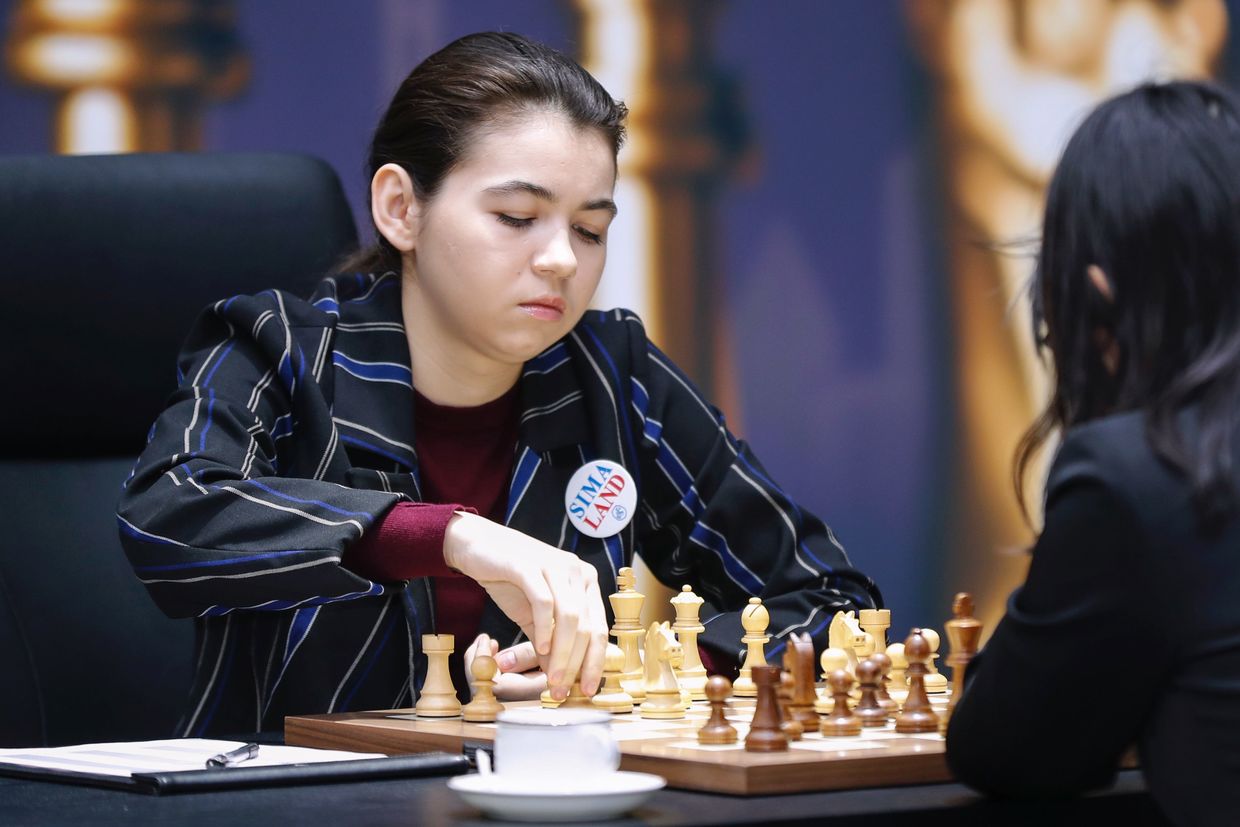
But away from the board this week, debate lingers over whether grandmasters Goryachkina and Ju should even be facing off in a women’s-only tournament.
Surely chess – as a game of brains rather than brawn – provides an opportunity to remove all gender differences, pursuing a cause many desperately crave across society?
Indeed, women are free to compete with men at the World Chess Championship, so why do they need their own tournament as well?
In the past, women have seen high-profile victories over men – Hungarian legend Judit Polgar famously beat Russia’s Garry Kasparov in 2002, after he had said “chess does not fit women properly” – but these remain outliers rather than a consistent trend towards women mounting a serious challenge to the top-level men on the boards.
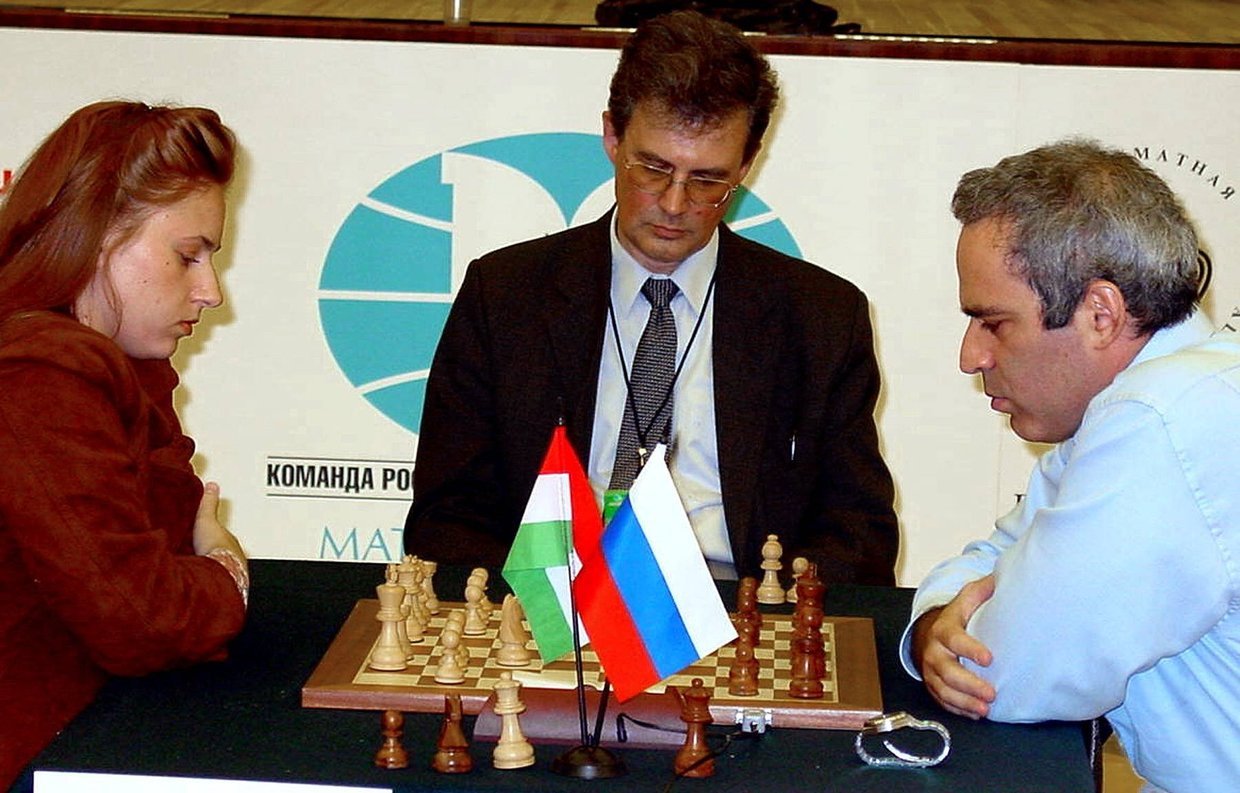
The World Chess Championship has never seen a female winner since its official inception in 1886; the current FIDE ratings feature only one woman, China’s Hou Yifan, ranked inside the top 100.
The reasoning for that has typically been put down to various factors.
Participation rates are far higher among men than women, starting from a young age. Chess is often seen as being for boys rather than girls; boys will welcome the competitive element, while girls will be discouraged from it.
With that emerges a self-sustaining trend where boys (and then men) will test themselves against each other in ever-tougher competition, while girls (and women) will compete for separate, gender-specific prizes.
Chinese sensation Hou Yifan – a four-time women’s world champion and currently ranked number 75 overall in the world – now focuses on playing in mixed competition to raise her game.
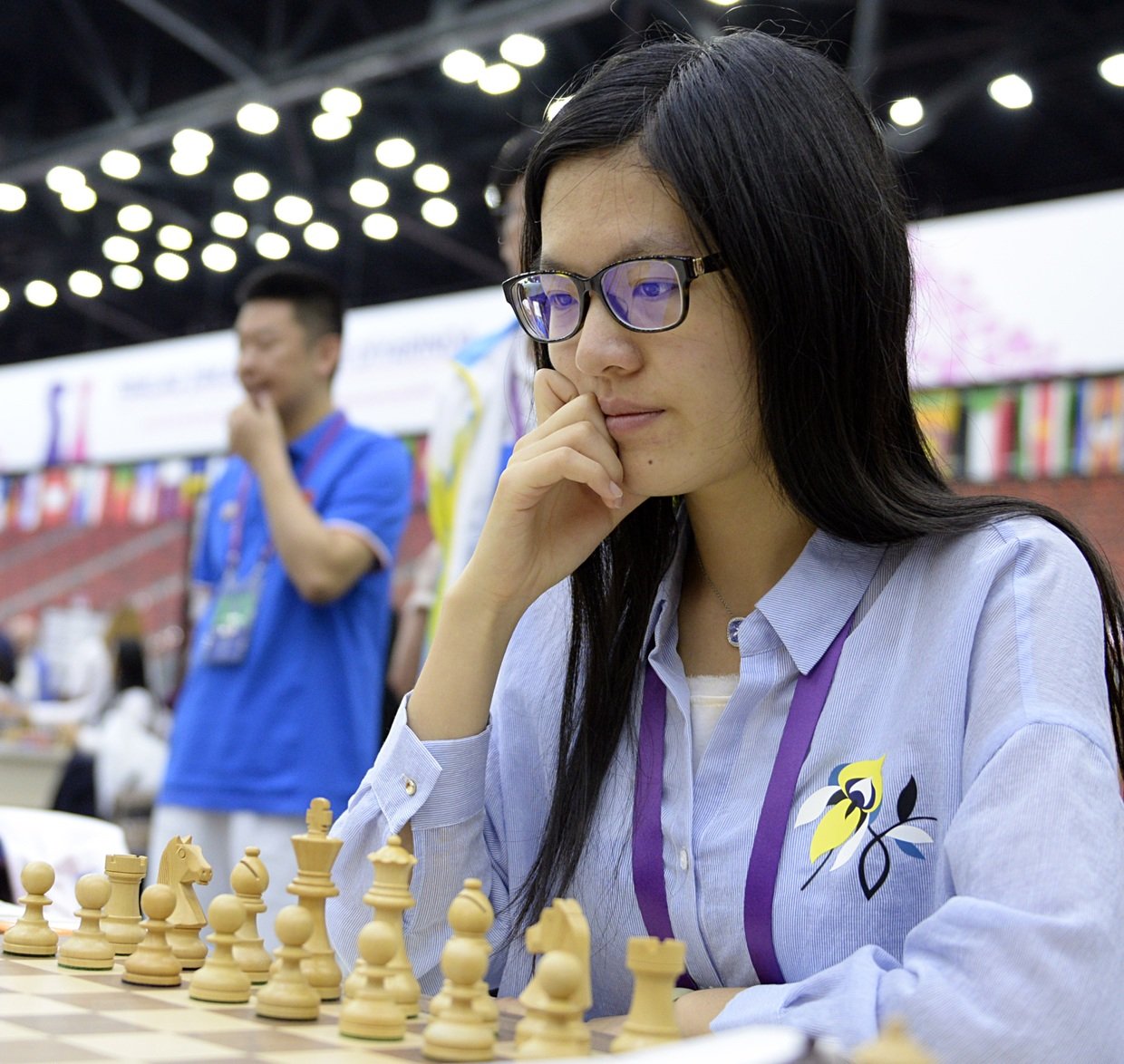
She says that the social factors involved affect the paths male and female players take.
"I think women train less hard at chess compared to men while they’re growing up,” Hou, 25, told chess.com earlier this year.
"In China, girls tend to think more about university, and then things like family, life balance...
"Growing up, female players are told, 'If you win the girls’ title, we’ll be really proud of you, and this is a great job!' It’s unlikely that any of them were told, 'No, you should be fighting for the overall title!'
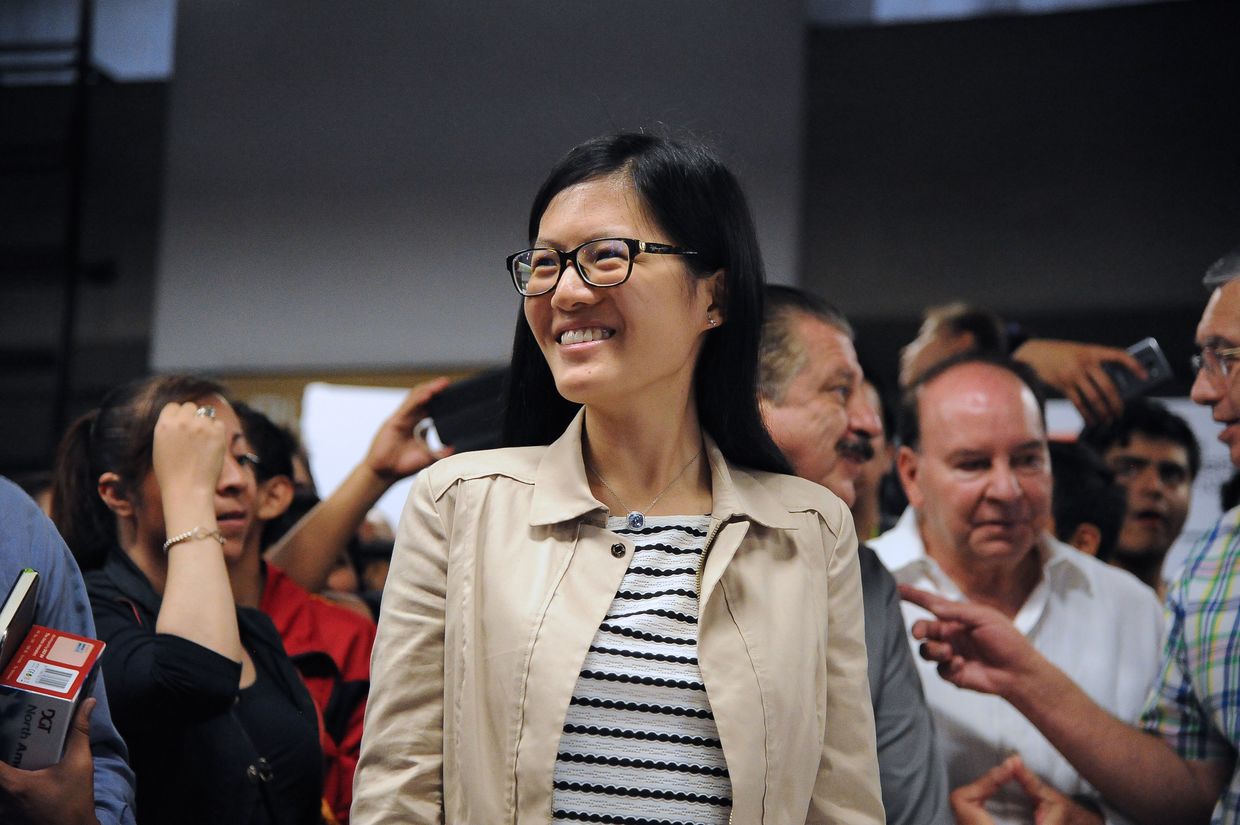
"Girls are told at an early age that there’s a kind of gender distinction, and they should just try their best in the girls' section and be happy with that.
“So without the motivation to chase higher goals, it’s harder for girls to improve as fast as boys as they grow up.”
Fewer women competing overall will mean fewer female players rising to the highest levels.
Or at least, that's how the argument goes.
Women's chess legend Polgar has even called for the removal of all segregation between the sexes, arguing: “in the end, our goal must be that women and men compete with one another on an equal footing.”
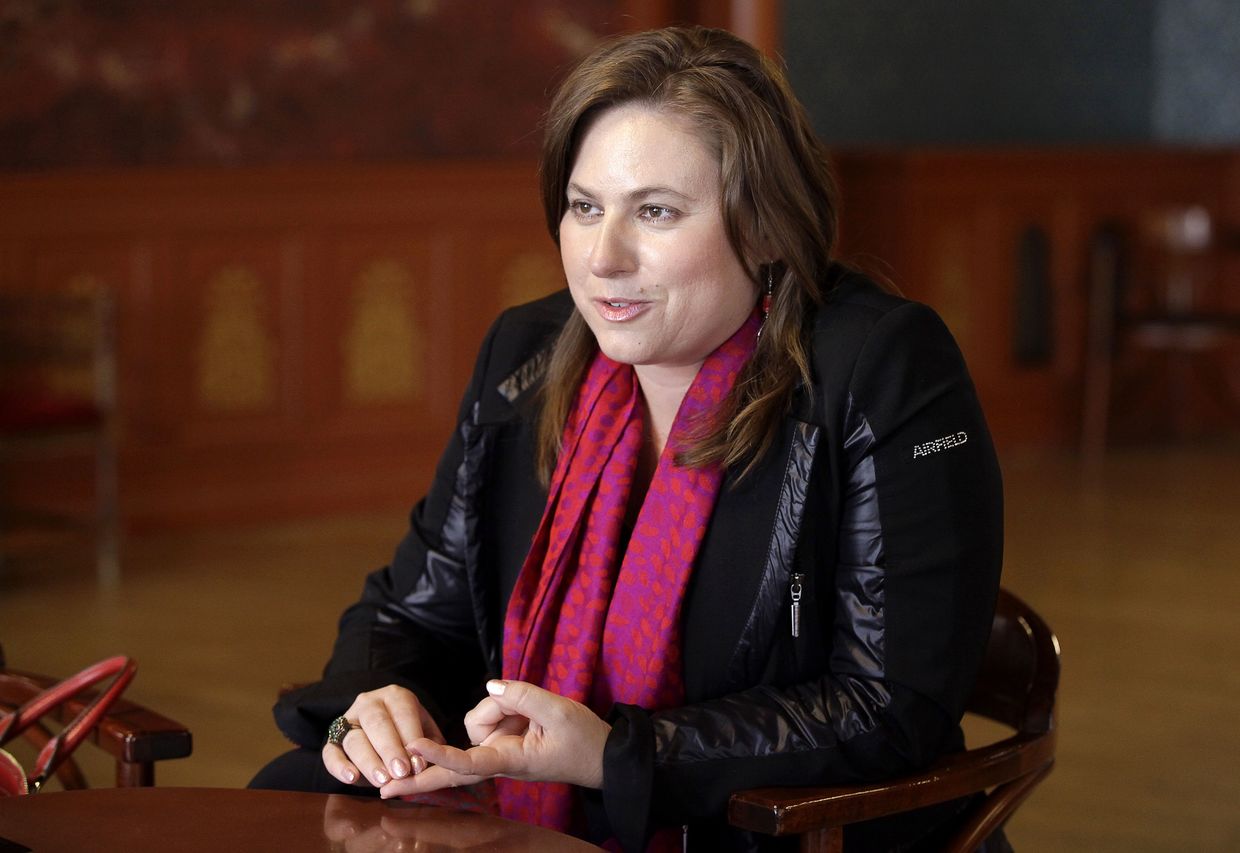
But research suggests that it's not all about participation rates and social factors.
Australian academic Robert Howard has studied the issue in depth, positing that: “...even in countries like Georgia, where female participation is substantially higher than average, the gender gap actually increases – which is, of course, the exact opposite of what one would expect were the participatory hypothesis true.”
Instead, Howard said that "male predominance in chess and related domains may be due partly to sex differences in innate abilities."
Chinese star Hou also offered thoughts suggesting that physical capabilities may be hindering women from reaching the heights of their male chess-playing counterparts.
"Theoretically, there should be a possibility that a woman can compete for the title in the future, but practically I think that the chances of this happening in the next few decades are very small,” she said.
"I do think the average rating of female players could improve, but the gap between the top women right now and the players competing for the world title is really quite large.
"But if you look at any sport, it’s hard to imagine girls competing at the same level as men. I think there is a physical aspect because chess exhausts a lot of energy, especially when games last 6-7 hours, and here women could be more disadvantaged.”
Also on rt.com Norwegian chess king Magnus Carlsen claims World Blitz title in MoscowCurrent FIDE vice-president Nigel Short caused feminist outrage when he suggested something similar back in 2015, saying women were simply less suited to competing with men at the highest echelons of chess.
“Men and women's brains are hard-wired very differently, so why should they function in the same way?” Short said.
“I don't have the slightest problem in acknowledging that my wife possesses a much higher degree of emotional intelligence than I do.
“Likewise, she doesn't feel embarrassed in asking me to maneuver the car out of our narrow garage. One is not better than the other, we just have different skills.
“It would be wonderful to see more girls playing chess, and at a higher level, but rather than fretting about inequality, perhaps we should just gracefully accept it as a fact.”
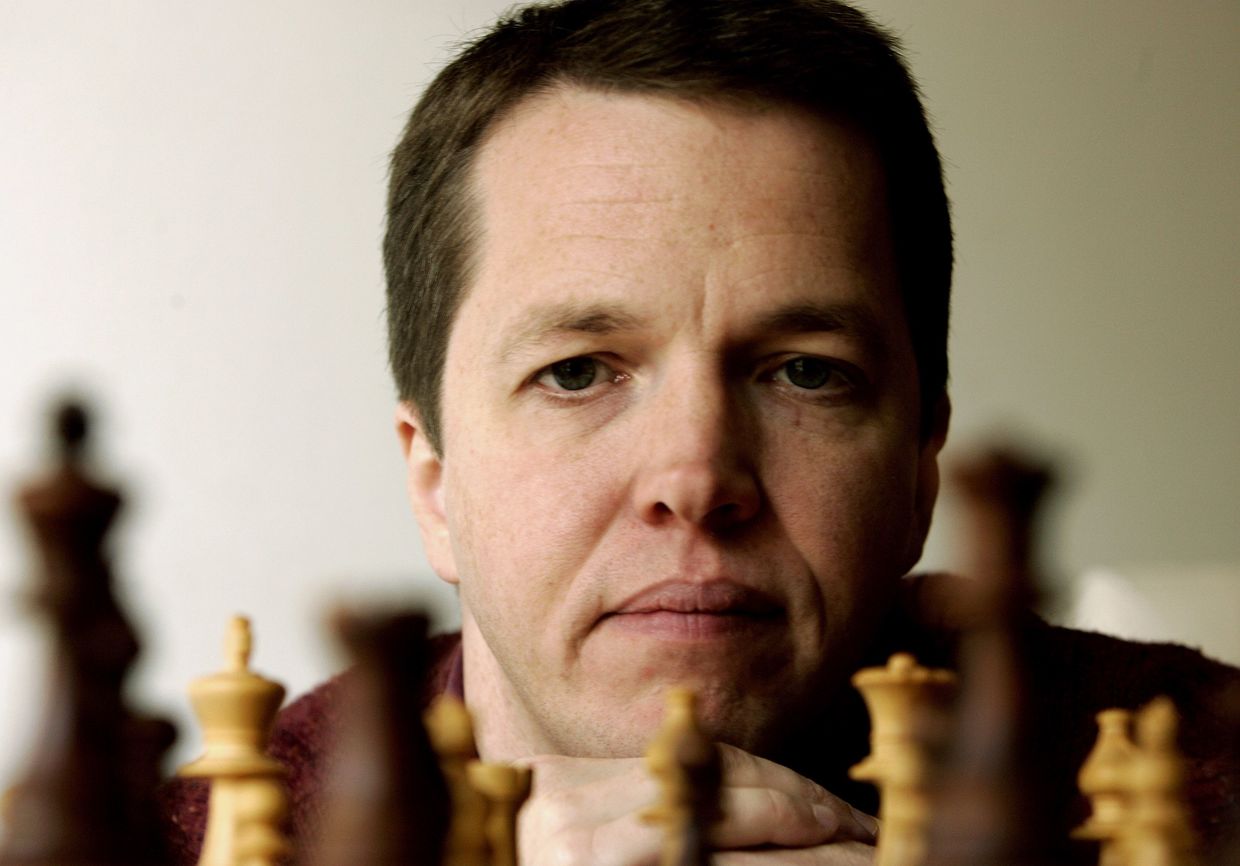
By the logic of those calling for a gender free-for-all in society, having a World Chess Championship open to men and women and then a separate one exclusively for women is discriminatory and unnecessary.
But under the current women's-only world title, Goryachkina and Ju at least stand far more chance of picking up a major title and some serious money than they would competing against men. That is not a slight on their abilities, but a fact.
In this respect, chess continues to make the right moves with its gender division.













